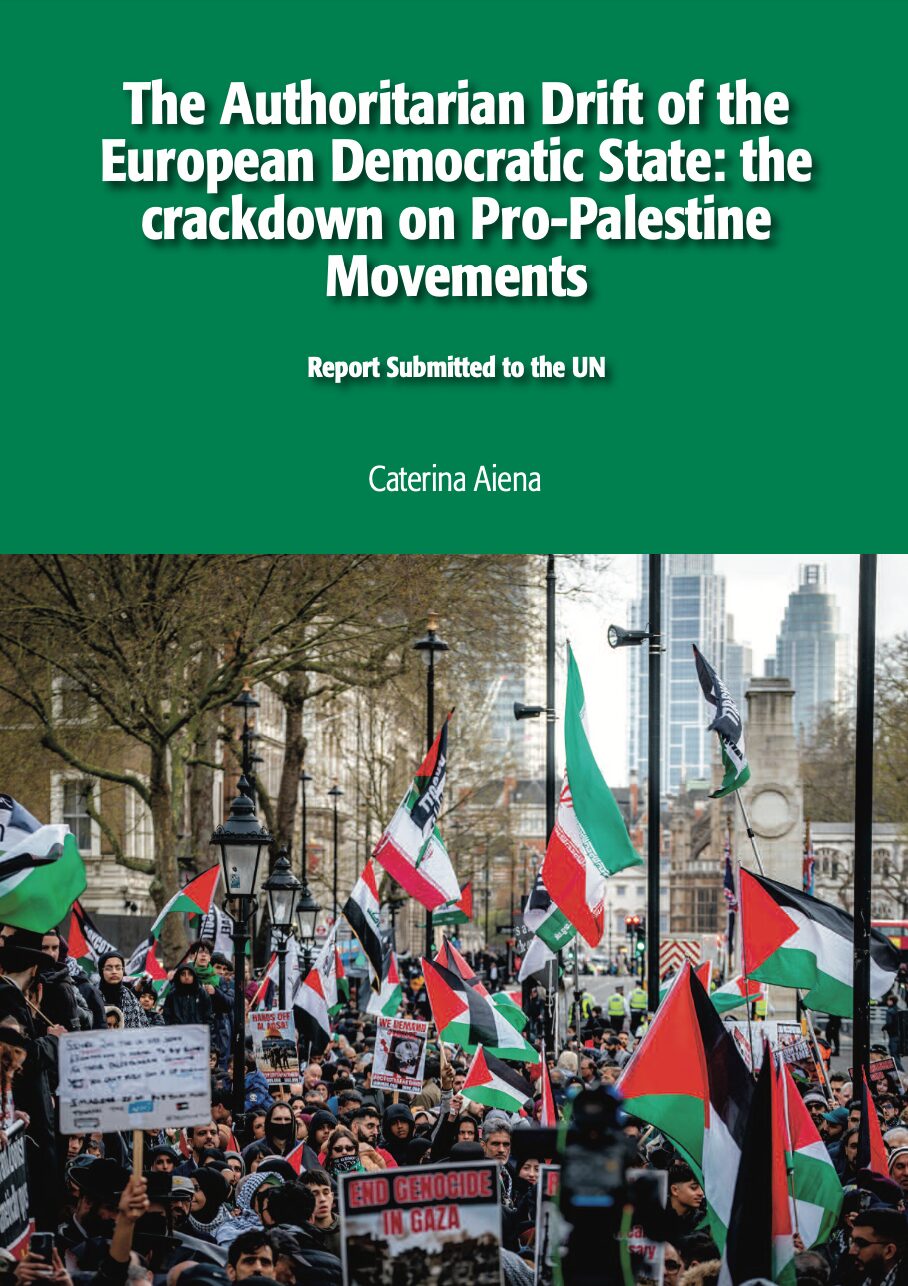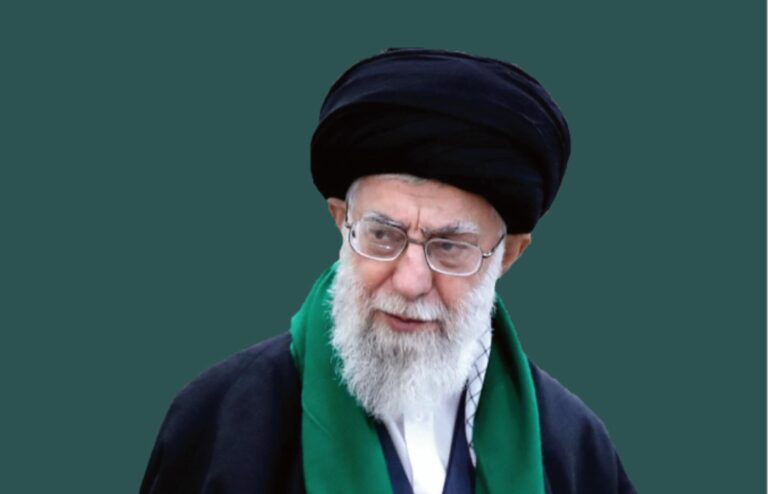The full report first report, ‘The Authoritarian Drift of the European Democratic State: the Crackdown on Pro-Palestine Movements’ written by Caterina Aiena,on curtailment of pro-Palestine support by UK, France and Germany, was submitted to the UN in Decemmber 2023.
Download an anonymised copy here. Read the executive summary below.
The full report, on curtailment of pro-Palestine support by UK, France and Germany, was submitted to the UN in December 2023.
Download an anonymised copy here. Read the executive summary below.
Executive Summary of communication to UN over curtailment of pro-Palestine support by UK, France and Germany
Contents
Information concerning the Communication
Type of Communication: Joint Communication
Addresses: Pursuant to Human Rights Council resolutions 49/10, 52/9, 50/17 and 52/4:
- Special Rapporteur on the promotion and protection of human rights and fundamental freedoms while countering terrorism
- Special Rapporteur on the situation of human rights defenders
- Special Rapporteur on the promotion and protection of the right to freedom of opinion and expression
- Special Rapporteur on the rights to freedom of peaceful assembly and of association
Contents of the Communication: information on legislation and policy violating the right to freedom of opinion and expression, peaceful assembly and of association, especially as counter-terrorism measures; criminalization of human rights defenders in UK, France and Germany
Executive Summary
Since the escalation of hostilities between Palestine and Israel on the 7th of October 2023, the governments of United Kingdom, France and Germany have reached an alarming level of repression against protests and dissent in support of Palestinians, with the targeting of activists, artists, protestors, political and civil organizations through the use of bans, intimidation, harassment and arrests.
Using the UN special joint communication procedure, IHRC has therefore submitted a complaint, reporting information on legislation and policy deemed to violate the right to freedom of opinion and expression, peaceful assembly and of association, and protection of human rights defenders.
This communication has been addressed to the Special Rapporteur on the promotion and protection of human rights and fundamental freedoms while countering terrorism; the Special Rapporteur on the situation of human rights defenders; Special Rapporteur on the promotion and protection of the right to freedom of opinion and expression; Special Rapporteur on the rights to freedom of peaceful assembly and of association.
In analysing such abusive conduct by the three states, five main areas of activity can be clearly identified:
-
Criminalization of Pro-Palestine supporters and organizations:
these include activists, artists, politicians, students and others. It remains the most frequently used way to suppress public gatherings and actors, often by inciting law enforcement agencies against them. Banning without qualification, or with no limits or definition places such policies and legislation outside the bounds of international counter-terrorism requirements. Most of the bans simply apply to fundraising, the display of the Palestinian flag, the wearing of the Palestinian keffiyeh, and chanting the “Free Free Palestine” slogan.
- Censorship: strict guidelines have been provided by the various Ministers of Education or other relevant government actors to schools and universities on how to discuss the situation in Palestine, forbidding “visibly wearing relevant clothing”, such as the keffiyeh known as the Palestinian scarf, displaying stickers, patches, booklets with inscriptions such as ‘free Palestine’ or a map of Israel in the colours of Palestine (white, red, black, green), or ‘Free Free Palestine’ slogan.
-
New criminal offences:
new legislation has been proposed making anti-Zionism a criminal offense, as for instance in France or in the UK under the “glorification of terrorist acts” and counter-extremism law, and criminalising behaviour associated with terrorism such as the Shahada flag, which “looked like the Islamic State flag but is not the Islamic State flag” (UK)
-
Surveillance:
referral of CSOs and private individuals who criticize Israel to private domestic authorities by landlords, work colleagues, family members or acquaintances could be possible in Germany, (Federal Government Draft law, reforming the Intelligence law), and is already possible in the UK through the Prevent programme (UK)
-
Management of migratory influx and restricted citizenship:
systematic withdrawal of residence permit have been demanded by political parties in France, as well as “large-scale deportation” or expulsion of residents who do not hold German citizenship and openly protest against Israel in Germany, or again in Germany by embedding as a precondition for citizenship the recognition of Israel’s right to exist.
Against this backdrop, IHRC believes that persistent accusations that any form of criticism of Israeli policy and actions in the Occupied Territory is essentially racist and anti-Semitic leads to an over-simplification of a conflict that traces its roots to long before the current crisis. The aim of those who wish to equate anti-Zionism with anti-Semitism is simply to bring CSO’s and other critics to self-censor so that uncomfortable facts remain unspoken and, by extension, unchallenged.
Furthermore, anti-terrorism and anti-extremism policies and legislation under consideration will strengthen draconian policies already in force, especially in the areas of citizenship, migratory flows management, monitoring of CSO’s and the restriction of individuals’ political rights. Many Muslim organizations are routinely subjected to targeted vilification campaigns by sections of the media and politicians in a bid to discredit them and frustrate their work. But paradoxically, such policies also end up targeting and accusing of antisemitism many Jews and Jewish groups who often work with Muslim CSOs in their pro-Palestinian activism and solidarity work.
IHRC has also repeatedly expressed concerns about the impact that such measures have on citizens, believing that they will lead to a more toxic environment of hate, further polarization of public opinion and a greater impairment of the citizenry’s political membership and rights.







